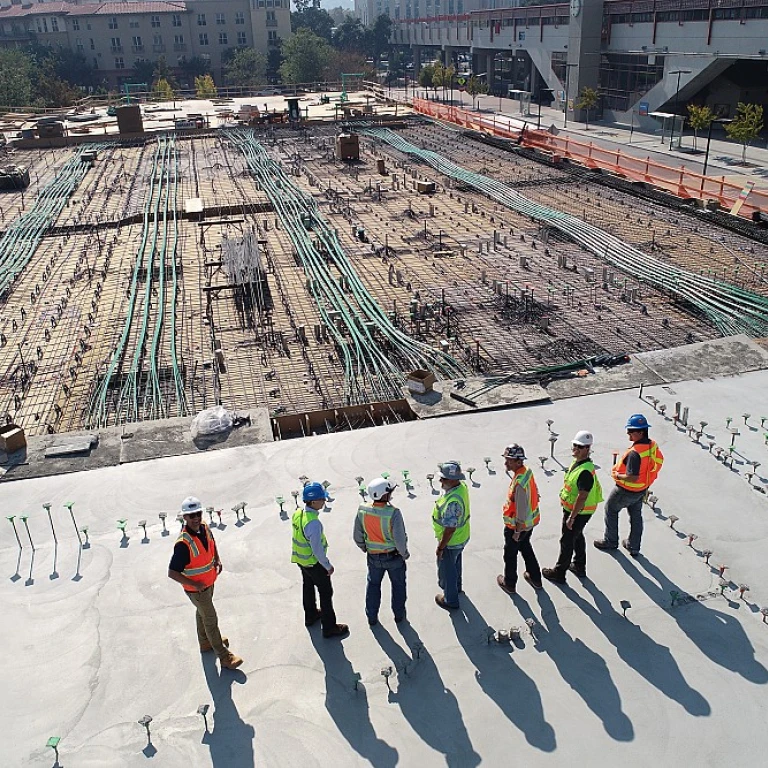
Understanding the Role of Pastoral Leadership
{"sectionHTML":"The Essence of Pastoral Leadership
Leaders in the sphere of pastoral ministry take on the profound responsibility of shepherding their communities by nurturing faith, fostering spiritual growth, and serving as a moral compass. At the Center for Pastoral Leadership in Wickliffe, Ohio, this role is explored and expanded, ensuring that those at the helm are adequately equipped for the spiritual challenges of today.
The position of a pastoral leader is one of guidance, education, and empathy. These individuals are called upon to exemplify the teachings of the church through their actions and decisions. The pastoral leaders who emerge from institutions like the Borromeo Seminary in the Diocese of Cleveland are trained in theological education, allowing them to connect deeper with the faith they espouse and the people they serve. Their role extends beyond simple ministry; it encompasses leading by example and facilitating pastoral formation that resonates with contemporary societal values.
Understanding the full scope of pastoral leadership also involves acknowledging its critical function within the broader scope of Catholic education. Many clergy, graduates from sainthood institutions like St. Mary Seminary, gain their formation here. High school-level theological guidance often forms the bedrock for those venturing into this field, making institutions like the Center for Pastoral Leadership essential for equipping leaders with advanced theological acumen and pastoral strategies.
This educational journey not only pertains to priestly formation but also to the nurturing of lay ecclesial ministers who often perform pivotal roles within their communities. Theological schools in the United States, such as those found in Cleveland, create programs that nurture both personal and professional growth through doctor of ministry and master of arts in pastoral studies. These programs equip leaders to undertake practical ministry and serve effectively, strengthening their communities through enhanced spiritual and emotional intelligence.
For some leaders, the transition from simply surviving in their roles to thriving involves developing these new skills and insights, as can be seen in articles focused on crafting effective professional goals. Overall, the role of pastoral leadership isn't solely defined by theological instruction but by the capacity to integrate this knowledge with a genuine understanding of community dynamics and needs.
The Unique Challenges in Pastoral Leadership
Confronting the Complex Landscape of Ministry Leadership
Pastoral leadership is not without its unique set of challenges, often arising from the multifaceted nature of ministry roles. Leaders in the center of pastoral formation, such as those at Saint Mary Seminary in Wickliffe, Ohio, face a complex tapestry of responsibilities that blend spiritual guidance with organizational management.
Leading a ministry involves navigating the intricacies of theological education while managing the practical aspects of running a church community. The clergy are called upon to embody the teachings of the Catholic Church, which can sometimes be at odds with modern societal expectations. This balancing act requires deft negotiation skills and a deep understanding of both doctrine and the needs of their parishioners.
Moreover, as leaders within the diocese of Cleveland, these individuals are responsible for the spiritual formation of both new clergy and lay ecclesial ministers. This includes those in the seminary graduate programs and is rooted in a mission that stretches beyond basic pastoral care to encompass community development and education.
There is also the challenge of maintaining personal resilience while delivering wide-ranging services and engaging in the larger mission of the church, a topic which naturally leads to discussions about emotional intelligence, as well as the strategies discussed in more detail within leadership conferences such as the KPMG RISE Leadership Conference.
Furthermore, the role of pastoral leaders often extends into social justice, counseling, and conflict resolution. All of these areas require specific training and considerable experience, highlighting the importance of formal education and continuous learning through institutions like the Borromeo Seminary and Saint Mary Seminary.
Embracing these challenges through robust pastoral leadership programs and workshops helps to develop leaders who are equipped to address both current challenges and those unforeseen in the future, thus fostering a resilient and adaptable church community.
Training Programs at the Center for Pastoral Leadership
Comprehensive Training Programs for Future Leaders
The Center for Pastoral Leadership in Wickliffe, Ohio, offers a range of training programs designed to equip future leaders with the skills needed to navigate the unique challenges of pastoral leadership. These programs are tailored to meet the diverse needs of individuals at different stages of their leadership journey, from those just beginning their formation to seasoned clergy seeking advanced theological education.
At the heart of these programs is a commitment to holistic development, integrating academic rigor with practical ministry experience. The center collaborates closely with institutions like Borromeo Seminary and Saint Mary Seminary to provide a robust theological education that is both intellectually challenging and spiritually enriching. This partnership ensures that participants receive a comprehensive education that prepares them for the multifaceted demands of pastoral leadership.
Programs Tailored to Diverse Needs
Whether you are a seminary graduate or pursuing a master of arts in theology, the center offers a variety of programs to suit your needs. These include:
- Priestly Formation: Aimed at those preparing for ordination, this program focuses on the spiritual, academic, and pastoral formation necessary for effective ministry.
- Lay Ecclesial Ministry: Designed for laypersons involved in church leadership, this program emphasizes the development of skills needed for effective service in various ministries.
- Doctor of Ministry: An advanced program for clergy and lay leaders seeking to deepen their theological understanding and enhance their leadership capabilities.
These programs are not only about academic learning but also about fostering emotional intelligence and resilience, essential qualities for any leader. Participants are encouraged to engage in reflective practices and community service, which are integral to the center's approach to leadership development.
For those interested in exploring more about leadership growth, the Boston Leadership Institute offers additional insights into effective leadership pathways.
Developing Emotional Intelligence in Pastoral Leaders
Fostering Emotional Acumen for Effective Leadership
The importance of emotional intelligence within pastoral leadership cannot be overstated. At the Center for Pastoral Leadership in Wickliffe, the development of this vital skill is a cornerstone of their training programs. This focus is essential given the unique challenges faced by clergy and lay ecclesial leaders in their ministry. Emotional intelligence in pastoral roles involves the ability to understand, manage, and leverage emotions effectively. Such skills are essential for leaders to engage meaningfully with their congregations and community members. This capability is as crucial to pastoral formation as theological education itself.- Seminary and Theological Education: The Center provides rigorous educational programs, aligning with the Borromeo Seminary and Saint Mary Seminary, which are both part of the Cleveland Diocese. These programs emphasize emotional development as an integral aspect of a leader’s overall formation.
- Practical Applications: Students at the graduate school level, within programs such as the Master of Arts or Doctor of Ministry degrees, are encouraged to apply emotional intelligence in real-world settings, bridging theory with practice effectively.
- Holistic Growth: Resources for fostering emotional intelligence are interwoven with other leadership development elements, promoting a well-rounded approach that benefits both clergy and lay leaders. This holistic approach ensures leaders are prepared to handle the emotional demands of their roles.
Building Resilience in Leadership
Strengthening Endurance for Effective Leadership
In the dynamic field of pastoral leadership, resilience emerges as a cornerstone of effective guidance. The Center for Pastoral Leadership in Wickliffe, Ohio, emphasizes the ability to withstand and grow through challenges, a vital trait for leaders within the diocese of Cleveland and beyond. Resilience in leadership involves the capacity to not only cope with the demands of ministry but also to actively thrive despite them. At the Borromeo Seminary and Saint Mary Seminary, priestly formation and lay ecclesial training focus on building emotional, mental, and spiritual strength. This holistic approach ensures that leaders can maintain their efficacy even in times of adversity. Programs at the center encourage graduates, whether they are pursuing a master of arts, doctor of ministry, or a high school education in theology, to develop resilience by engaging in continuous theological education. This ongoing formation is crucial for clergy and lay leaders alike as it fosters a deep understanding of church services and ministry responsibilities. Theological and pastoral education at the seminary helps leaders confront real-world challenges with a steadfast resolve. By learning to adapt to rapidly changing circumstances, leaders can demonstrate resilience, a trait deeply rooted in the teachings and practices of the Catholic Church. Moreover, the role of community support is emphasized. Engaging with fellow leaders, mentors, and the wider faith community reinforces resilience by providing networks of encouragement and accountability. Such networks are especially vital for leaders who are tasked with guiding others, as they exemplify the strength and support that their own communities can rely on. The resilience cultivated within the walls of the seminary transcends into broader community impact, as leaders equipped with this trait can inspire confidence among their congregants and build a strong sense of unity within their respective ministries. This foundational resilience is key to advancing the mission of the church in the United States and internationally.Community Impact and Leadership Growth
Fostering Community Influence through Pastoral Leadership Development
The Center for Pastoral Leadership holds a pivotal place in nurturing clergy and lay leaders within the Diocese of Cleveland, especially in their profound impact on community. This synergy between leadership growth and community impact is particularly evident in places like Wickliffe, Ohio, where pastoral leaders trained at the Borromeo Seminary and Saint Mary Seminary implement their learnings to foster connections and enhance community spirit.
A seminary's comprehensive approach to pastoral formation includes rigorous academic education through a blend of theological education, pastoral leadership training, and advanced theological courses. This holistic method prepares leaders who are not only well-versed in school theology but also sensitive to the community's needs.
By integrating emotional intelligence and resilience-building elements in their master of arts and doctor of ministry programs, the Center ensures its graduates emerge ready to serve the broader Catholic Church community. Their roles are crucial in extending the church's reach, encompassing vibrant ministries and service projects driven by a deep understanding of pastoral care. These initiatives often ripple out, impacting parishioners and the wider diocese community with positivity and strong stewardship.
Programs and services offered by the center pastoral are designed to bridge the gap between theoretical knowledge and practical application. The aim is to equip seminary graduates with the skills necessary to inspire their congregations toward active participation in community service and engagement. As these leaders mature in their roles, they become catalysts for change, not only within the church environment but in society at large.
Thus, the influence of clergy and lay leaders extends beyond ecclesiastical confines, fostering a proactive dialogue between faith and everyday life, strengthening both spiritual and societal bonds within the diocese. This multifaceted outcome underscores the central role of pastoral leadership development programs in shaping compassionate, impactful leaders.













